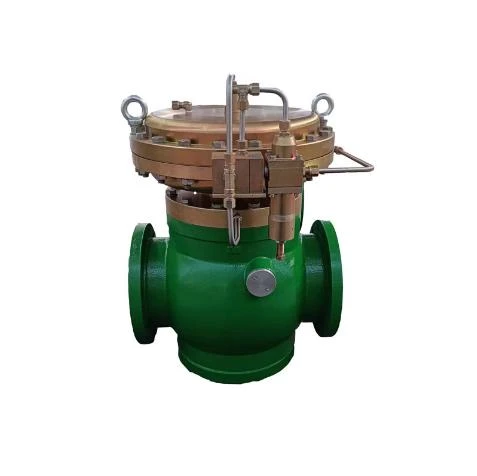
Dec . 23, 2024 09:12
Back to list
Understanding the Functionality and Applications of Gas Pressure Regulators
The Importance of Gas Regulators in Modern Applications
Gas regulators play a critical role in various industries and applications where gas is utilized. From household uses to industrial processes, gas regulators ensure that the gas supplied is at a safe, consistent, and manageable pressure. This article explores the importance of gas regulators, their functionality, and their applications in different sectors.
What is a Gas Regulator?
A gas regulator is a mechanical device designed to control the pressure of gas flowing from a source, such as a pipeline or a gas cylinder, to a delivery system, such as a heating appliance or industrial equipment. By reducing the high pressure of the gas in the supply line to a lower, safe, and usable level, the regulator helps prevent potential hazards associated with excessive pressure.
How Gas Regulators Work
Gas regulators operate based on the principle of pressure regulation. Essential components of a gas regulator include an inlet port, a diaphragm, and an outlet port. When gas flows into the regulator from the supply source, it pushes against a diaphragm, which in turn controls the opening and closing of the outlet port. This mechanism allows for the adjustment of gas pressure to the desired levels, maintaining a steady flow regardless of fluctuations in upstream pressure.
Applications of Gas Regulators
Gas regulators find applications across numerous sectors
1. Residential Use In homes, gas regulators are commonly employed in natural gas and propane systems, enabling safe and efficient functioning of appliances such as stoves, heaters, and water boilers. The regulators ensure that the gas delivered to these appliances is at an appropriate and safe pressure.
gas regulator

2. Industrial Use In various industrial applications, gas regulators are crucial for processes that involve combustion or chemical reactions. Industries such as manufacturing, food processing, and pharmaceuticals utilize gas regulators to provide precise gas flow, which is essential for maintaining product quality and ensuring safety.
3. Medical Applications In healthcare settings, gas regulators are vital for controlling the supply of medical gases such as oxygen or nitrous oxide. They ensure that patients receive the correct amount of gas for therapeutic use, with precise pressure control being crucial for patient safety and comfort.
4. Welding and Metal Fabrication In welding processes, gas regulators are used to manage gases like acetylene or argon, providing the appropriate mix and pressure for various welding techniques. This regulation is essential for achieving high-quality welds and ensuring the safety of workers.
Safety Considerations
The importance of gas regulators in promoting safety cannot be overstated. Improper gas pressure can lead to dangerous situations, including explosions, leaks, and equipment damage. Regular maintenance and inspection of gas regulators are essential to ensure they function correctly. Users should ensure compliance with relevant safety standards and regulations to mitigate risks.
Advancements in Gas Regulation Technology
With advancements in technology, modern gas regulators are becoming more sophisticated. Features such as automatic pressure adjustment, remote monitoring capabilities, and incorporation of smart technology allow for improved efficiency and safety. These innovations aim to reduce human error and enhance operational reliability across various applications.
Conclusion
In conclusion, gas regulators are indispensable in the safe and effective use of gas across diverse sectors, from residential to industrial applications. Their ability to control pressure ensures that gas is delivered safely and efficiently, minimizing hazards and optimizing performance. As technology continues to advance, gas regulators will evolve to meet the ever-increasing demands for safety and efficiency in gas management. Understanding their importance is crucial for anyone involved in utilizing gas in any capacity.
Latest news
-
Safety Valve Spring-Loaded Design Overpressure ProtectionNewsJul.25,2025
-
Precision Voltage Regulator AC5 Accuracy Grade PerformanceNewsJul.25,2025
-
Natural Gas Pressure Regulating Skid Industrial Pipeline ApplicationsNewsJul.25,2025
-
Natural Gas Filter Stainless Steel Mesh Element DesignNewsJul.25,2025
-
Gas Pressure Regulator Valve Direct-Acting Spring-Loaded DesignNewsJul.25,2025
-
Decompression Equipment Multi-Stage Heat Exchange System DesignNewsJul.25,2025

